Communicate with my ex? Well, you don’t know my ex!

It’s no surprise to most of us who are dealing with divorce that communication with our spouse / ex can be one of the most challenging aspects of the relationship. We all know it’s better to step away than respond to an ugly text, refrain from asking what he/she did over the weekend, or drop a sarcastic statement into the conversation, but we also know we should eat broccoli and exercise, right? Knowing it and choosing it are two different things.
So why should you prioritize healthy communication during divorce? Simply put, thoughtful communication has the potential to positively impact the relationship with your ex, your kids, and most importantly, how you heal and ultimately, how you feel about yourself. Here’s why:
It’s About You
I like to help my clients set goals for their divorce and create a divorce mission statement. When you make the effort to create something authentic and meaningful, you have tools that serve as sounding boards during the tough times. As decisions arise, ask yourself: Is this a step toward achieving my long-term goals? If not, you may have your answer. Training yourself to evaluate choices based on the bigger picture puts you in control and is a skill that will serve you well beyond this transition. Do you want to feel confident in your decisions, make a career move, or pursue a new skill or hobby? Start by thinking about how you feel when you give in and “go low.” Chances are, you recognize that this isn’t you at your best, but you may feel baited, or intimidated by the pattern that’s been established. This is so common and understandable! So how do you change it?
Recognize that communicating respectfully is for you – not your spouse/ex. Choose not to engage in a disparaging conversation and take the high road because that’s who you want to be – not for anyone else. Start by choosing one small thing and respond differently than you might have done before. See how you feel and give yourself credit for making the hard choice. When you recognize that you are the only one who can control how and when you communicate, you put yourself back in the driver’s seat, and become less susceptible to a triggered emotional response you want to take back.
It’s About Your Kids
I’m currently reading Grit by Angela Duckworth. In it she quotes author and activist James Baldwin, who says, “Children have never been very good at listening to their elders, but they have never failed to imitate them.” Any of us parents (or teachers and mentors) recognize the truth in that statement! If you’re struggling with this one (and aren’t we all at some point?), consistently asking yourself these questions can help you stay on track:
- Would I want my children to act this way / write this text / say these things, and, how would I feel if they were watching?
- Does this choice support my goals and values?
- Is this decision based in love (for myself and others)
- Use the 10-10-10 rule: how will I feel about this decision in 10 minutes, 10 months, and 10 years?
What should you do if you slip up and say something you regret (which we all will do at some point!)? Own it. Apologize, and commit to changing the pattern. In other words, model the same behavior we want our kids to choose. They don’t expect us to be superhuman – in fact, I know that an honest apology is a catalyst for some of the best and most productive conversations with my kids. Apologies give us all permission to be vulnerable, process honestly, and move forward.
My twins were in high school when I went through my own divorce, which meant they saw, heard, and understood a lot. I had to be hypervigilant about what I was saying and doing to meet one of my goals, which was to be a healthy coparent for the long-term. That commitment has paid off every day since then because I am proud of how I handled myself, and grateful beyond measure for the relationships I have with my son and daughter. None of those things just happened – they took work and daily reminders to myself like the ones I’ve listed above. It’s hard, and it’s some of the most meaningful work you will do.
What if my ex and I can’t communicate at all?
Many of my clients are in this situation. They use a parenting app for all discussions and exchanges to minimize face-to-face contact and arguments. If this is you, use the app! It’s there to provide the disconnect you need and to keep everyone operating as respectfully as possible. Here are a couple ways to manage these high conflict situations.
- Use Bill Eddy’s BIFF method: Brief, Informative, Factual, Firm. In other words, communication should only be about the specific subject you’re addressing, no more and no less, provide the information the other parent needs, and then end it.
- Do not respond to anything that falls outside of that category. If your spouse / ex is trying to trigger you, they win when you respond and get into a nasty back and forth. Walking away puts you in control.
- Plan ahead. Think through what you want to say, write it down, and practice it. Ask yourself, if this conversation / email / text exchange goes exactly as I want, what would that look like? Then set yourself up to get there with intentional messages (Download my free Say it Better planner if you want help with this).
- Process frustration in productive ways. It won’t just go away! Journal, exercise, meditation, walking, calling a friend or just turning off your phone for a bit, are all ways to take care of yourself and stay true to your goals.
- Celebrate the successes! Give yourself credit for taking the high road, and it will be easier next time. Think about what it was that gave you the courage and strength to make this choice, and how you can employ that same approach going forward.
Finally, remind yourself that this time will pass. It may not feel like it right now, but there may be a day when you and your ex can have healthy discussions that don’t trigger or upset you. The steps you’re taking now will help you get there. In the meantime, use your good energy to focus on yourself and your kids, and the amazing future you deserve.
“Transformation doesn’t ask that you stop being you. It demands that you find a way back to the authenticity and strength that’s already inside of you. You only have to bloom.
Cheryl Strayed, Brave
